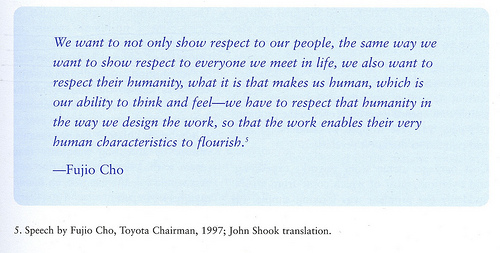 I like Lean. It is a great idea on how to get the whole enterprise on the same boat and working together in a systematic, near-scientific manner. However, at times I wonder whether Lean is keeping up with the times (which is why I am working on refining my ideas on Lean social business), and one worrying symptom is that Lean thinkers at large have not embraced social media. This is rather surprising for an ideology that encourages large-scale participation, although a certain amount of technological skepticism and being more of a tortoise than a hare are common features in Lean and can explain this to an extent.
I like Lean. It is a great idea on how to get the whole enterprise on the same boat and working together in a systematic, near-scientific manner. However, at times I wonder whether Lean is keeping up with the times (which is why I am working on refining my ideas on Lean social business), and one worrying symptom is that Lean thinkers at large have not embraced social media. This is rather surprising for an ideology that encourages large-scale participation, although a certain amount of technological skepticism and being more of a tortoise than a hare are common features in Lean and can explain this to an extent.
In this post, I will examine the state of Lean thinking on social media at the moment.












